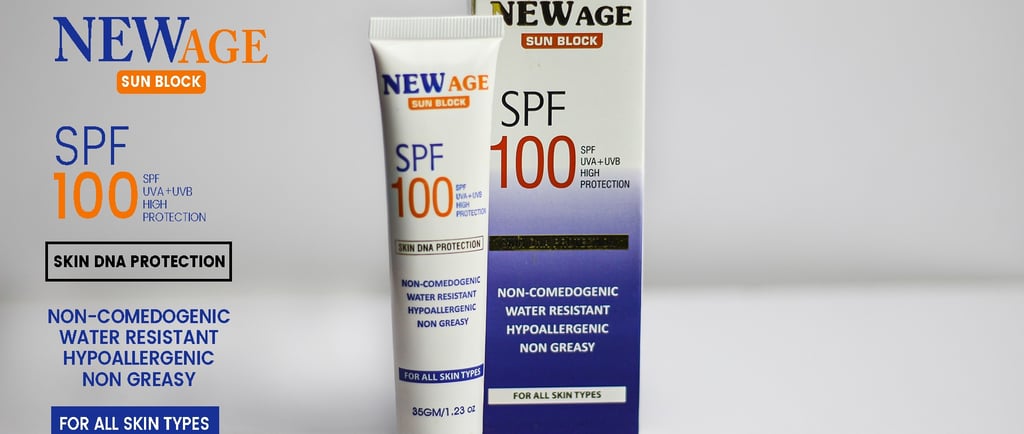Sunblock Secrets: Protecting Your Skin and Staying Youthful
Protect your skin daily with the right sunblock! Discover how SPF works, the difference between mineral and chemical sunscreens, and expert tips for choosing the best formula for your skin type. Stay safe, youthful, and radiant!
2/28/20253 min read


Why Sunblock is Your Skin’s Best Friend
Imagine this: You step outside, the sun kisses your skin, and you bask in the golden glow—until reality hits. That warm embrace? It’s actually a cocktail of UV rays plotting against your collagen, sneaking into your DNA, and fast-tracking wrinkles, sunspots, and (worst case) skin cancer. Yikes. Enter sunblock—the superhero your skin desperately needs but often gets overlooked like an uninvited guest at a party.
Slathering on sunscreen is not just a beach-day ritual. It is your daily shield against premature aging, painful burns, and long-term damage. But not all sunblocks are created equal. Let’s break it down so you can pick the perfect armor for your skin.
How Sunblock Works: The Science Behind the Shield
Sunblock acts like an invisible force field, absorbing or reflecting ultraviolet (UV) radiation before it wreaks havoc on your skin cells. UV rays come in two main flavors:
UVA (Aging Rays): These penetrate deep, breaking down collagen and causing wrinkles, sagging, and hyperpigmentation. They’re sneaky clouds, and glass won’t stop them.
UVB (Burning Rays): The culprits behind sunburns. They damage the outer layers of your skin and contribute to skin cancer risk.
A broad-spectrum sunblock protects against both, ensuring your skin stays healthy, youthful, and radiant.
The Magic Ingredients: What’s Inside Your Sunblock?
Sunblock formulas vary, but their effectiveness depends on the active ingredients. Let’s demystify them:
1. SPF (Sun Protection Factor)
SPF measures how well a product protects against UVB rays.
Pro tip: SPF 30 is the golden standard for daily use. Anything higher offers marginal extra protection but doesn’t make you invincible—reapplication is key!
2. Mineral vs. Chemical Sunblocks
Not all sunscreens work the same way.
Mineral (Physical) Sunscreens: Contain zinc oxide and titanium dioxide, which sit on your skin and reflect UV rays like tiny mirrors. Great for sensitive skin but can feel heavy or leave a white cast.
Chemical sunscreens: Use ingredients like oxybenzone, avobenzone, and octinoxate to absorb UV radiation and convert it into harmless heat. Lightweight and easy to apply, but some chemicals can irritate sensitive skin.
Want the best of both worlds? Some sunblocks blend both for balanced protection.
The Perks of Daily Sunblock Use (Beyond Avoiding Sunburn)
Using sunscreen religiously isn’t just about dodging painful burns. Here’s why you should make it a habit:
Fountain of Youth: Prevents premature aging, keeping wrinkles, fine lines, and sunspots at bay.
Skin Cancer Defense: Lowers your risk of melanoma and other skin cancers.
Even skin tone: reduces redness, hyperpigmentation, and blotchiness.
Barrier Against Pollution: Helps combat damage from environmental stressors.
Skipping sunscreen is like skipping a seatbelt It might seem fine at first, but the long-term consequences can be serious.
Debunking Common Sunblock Myths
1. “Darker skin doesn’t need sunscreen.”
False! While melanin provides some natural protection, it’s not enough to prevent sun damage and skin cancer. Everyone benefits from sunblock.
2. “I don’t need sunscreen on cloudy days.”
Wrong again. Up to 80% of UV rays penetrate clouds. You can still get burned or suffer long-term damage without direct sunlight.
3. “A high SPF means I don’t need to reapply.”
Nope! No matter the SPF, sunscreen breaks down over time. Sweat, water, and just living your life—wear it off. Reapply every two hours or after swimming/sweating.
4. “Makeup with SPF is enough.”
Nice try, but layering foundation with SPF 15 won’t cut it. You’d need to cake on way more than you’d ever want to get full protection. Use a dedicated sunblock underneath.
How to Choose the Right Sunblock for Your Skin Type
Picking the right sunblock doesn’t have to be overwhelming. Here’s a cheat sheet:
Oily Skin? Go for an oil-free, gel-based, or mattifying sunscreen.
Dry Skin? A hydrating sunscreen with hyaluronic acid or glycerin is your best bet.
Sensitive Skin? Opt for mineral sunscreen (zinc oxide & titanium dioxide) to avoid irritation.
Acne-Prone Skin? Look for non-comedogenic, lightweight formulas that won’t clog pores.
Make Sunscreen Your Daily Ritual
Sunblock isn’t just a summer fling; it’s a long-term relationship your skin will cherish. Whether you’re stepping out for errands or lounging indoors by a sunny window, protection is non-negotiable. So, find a formula you love, slather it on generously, and let your skin glow with gratitude!
Shield your skin with Proclera’s Sunblock for all-day protection, hydration, and a youthful glow!
